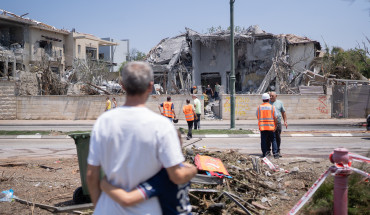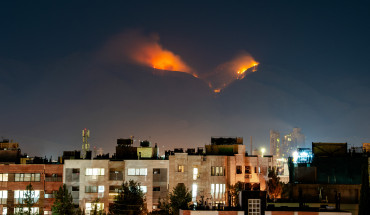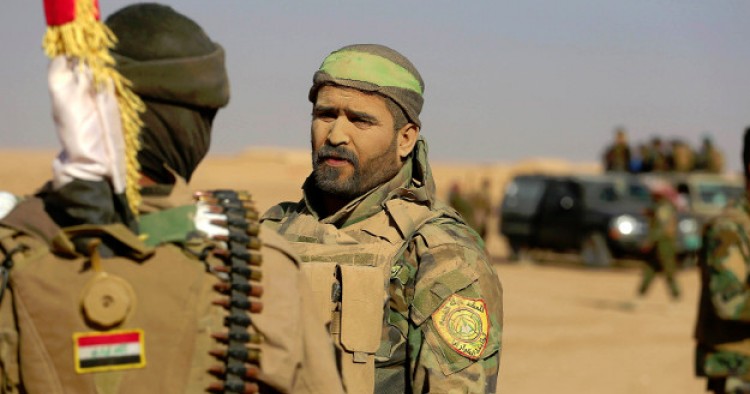On January 12, Iran’s Fars News Agency (FNA) reported that the Popular Mobilization Forces (PMF) “liberated” three regions in the west of Mosul.
According to FNA, an outlet affiliated with the Islamic Revolution Guards Corps (IRGC), PMF forces are preparing for the “sixth phase of operations to liberate the west of Nineveh Province.”
The report indicates that despite Sunni Iraqi and regional leaders’ concern, Iran-backed militia groups play a major role in the fight against the so-called Islamic State in western Mosul.
Last month, PMF leaders said the their forces were stationed within three kilometers of Tal Afar and were waiting to receive a green light from Baghdad to enter the city. According to Jawad al-Talibawi, a spokesman for the armed wing of Asaib Ahl al-Haq, forces from Kata'ib Hezbollah, Asaib Ahl al-Haq, the Badr Organization, and Kata'ib Sayyid al-Shuhada are tasked to lead the military operations to “liberate” Tal Afar. All these groups are closely linked with Iran’s Quds Force.
Tal Afar has been a major Islamic State stronghold about 40 miles west of Mosul and was a conduit for the group’s supply lines to and from Syria. Once inhabited by both Sunnis and Shiites, Tal Afar’s population is now largely Sunnis.
The PMF’s increasing role western Mosul, particularly in Tal Afar, has been a matter of grave concern for Iraqi Sunnis and regional Sunni leaders, who have repeatedly expressed the worry that Iran-backed sectarian groups may engage in revenge killings against Tal Afar’s Sunni inhabitants once the Islamic State is ousted. Turkey, in particular, has warned that it would not remain silent to the PMF’s advances into Tal Afar.
The PMF consists of militia forces largely from Shiite but also other Iraqi ethnic and religious groups. While some PMF units are Iraqi nationalists and follow Iraq’s top cleric Grand Ayatollah Ali Sistani, many prominent groups within PMF have close ties with Qassem Suleimani, the head of the IRGC’s elite Quds Force. Last November, Iraq’s parliament approved a law legalizing the PMF as separate military corps – a decision some Sunni Iraqi politicians and lawmakers derided as a Shiite “dictatorship.”
The Middle East Institute (MEI) is an independent, non-partisan, non-for-profit, educational organization. It does not engage in advocacy and its scholars’ opinions are their own. MEI welcomes financial donations, but retains sole editorial control over its work and its publications reflect only the authors’ views. For a listing of MEI donors, please click here.













